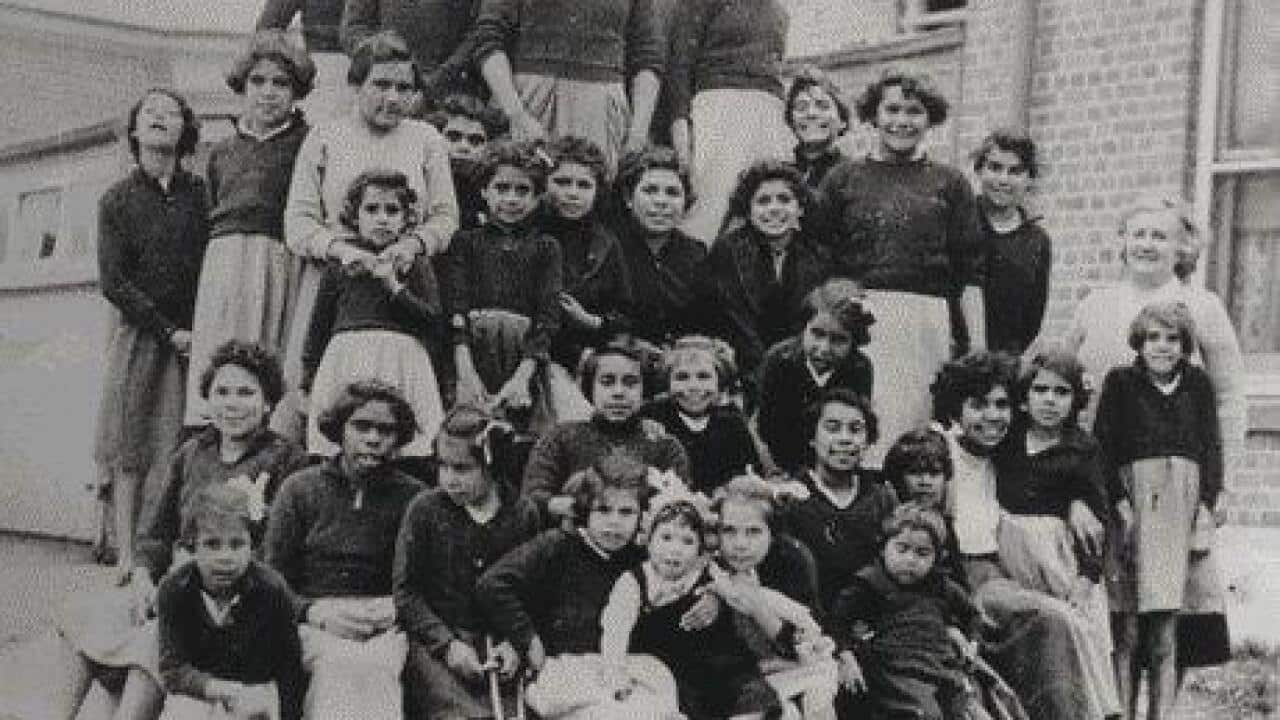On the 14th of February 2022, Scott Morrison marked the 14th anniversary of the National Apology to Stolen Generations with the claim that “Sorry is not the hardest word to say. The hardest is, ‘I forgive you’.”
According to our Prime Minister, “such a path of forgiveness does lead to healing”.
For our Survivors and descendants of the Stolen Generations, forgiveness is not the path to our healing. Our healing is ongoing and much more complex than the words “I forgive you.”
This will never replace our vital journey of reclaiming what was stolen from us through forced assimilation and cultural genocide.
Stolen Generations Survivors and their families have been and continue to be forced into assimilation through theft of our children, our language, our culture, our land – and now we hold the responsibility of reclaiming what is so central to our existence, our culture, our kin, our Country. After hearing Scott Morrison’s comments on forgiveness, Aunty Lorraine Darcy Peeters recalls her four-year-old self, stolen from her family and community, from her land, along with her seven siblings and sent to Cootamundra Domestic Training Home for Aboriginal Girls on Wiradjuri Country.
After hearing Scott Morrison’s comments on forgiveness, Aunty Lorraine Darcy Peeters recalls her four-year-old self, stolen from her family and community, from her land, along with her seven siblings and sent to Cootamundra Domestic Training Home for Aboriginal Girls on Wiradjuri Country.

Aunty Lorraine Darcy Peeters and her daughter Shaan Peeters. Source: Coota Girls Aboriginal Corporation
There, Aunty Lorraine would spend the next fourteen years of her life being stripped of her identity and trained as a domestic servant, in the interest of wealthy white families and government control.
“My basic human rights were taken from me. I could not see or practice culture. I could not see my family. I could not speak my language. I could not think for myself. I had no control over my life," she said.
“But I gained trauma, I gained grief and loss and mental anguish, which in turn affected me mentally and physically.”
According to the 1997 Bringing Them Home Report, over 100,000 Aboriginal children were forcibly removed from their families by police or welfare officers between 1910 and 1970.
These children had no rights, they were not protected from harm. Instead, the policies of forcible removal resulted in higher rates of discrimination and incarceration, lower education and employment outcomes, and poorer health for those who were removed compared to children raised in Aboriginal communities.
Aboriginal children who were forcibly removed from their families did not end up healthier, better educated or more likely to get jobs. Rather, forcible removal led to a cycle of poverty, ill-health, discrimination, and incarceration.
As a result, the Stolen Generations are one of the most disadvantaged groups within the broader Aboriginal and Torres Strait Islander population. The complex trans-generational effects of forcible removal continue to be experienced by descendants of Stolen Generations Survivors today.
In 2022, there are now more Aboriginal and Torres Strait Islander children being removed from their families than ever before. Our children are ten times more likely to be victims of contemporary removal practices and placed in out-of-home care than non-Indigenous children (Family Matters 2018).
We know firsthand that the practice of removing Aboriginal children from their families has horrific impacts on those who are removed, and these impacts are passed on to their descendants.
We now watch as our children continue to be taken from their families and communities in the name of “child protection,” reflecting the same racist practices and principals that have been enacted by governments for over 100 years.
“When I know that my actions, words or inaction have caused harm to one or many I not only "say sorry" I make the changes to my practices to ensure I don't repeat the same mistake again,” said Coota Girls descendant, CEO of Coota Girls Aboriginal Corporation Alicia Bairle.
“Our Government needs to deconstruct its policies and practices that continue to cause harm to our communities in order to promote genuine opportunities to walk our healing journey. Not be asking us for our "forgiveness".”
Our people and our communities are capable of healing through our own culturally and spiritually strong practices, developed and driven at the community level.
Aunty Lorraine has dedicated the last 22 years of her life to this. At 83-years-old she continues to support others to heal by delivering a trauma-informed healing program – based on her journey – to Stolen Generations Survivors and families, both in community and in prison and Aboriginal and non-Aboriginal workers.
If anything has prevented our healing it is not our inability to forgive, but by the racist practices, policies and systems that continue to perpetuate the violence of colonisation.
Coota Girls Aboriginal Corporation represents the voices of our Coota Girls Survivors, families, and descendants as we demand real action.
We never sought words, we sought action.
Co-authors Meagan Gerrard (Coota Girls descendant and Program and Communication Manager) and Alex McWhirter of Coota Girls Aboriginal Corporation










